By Scott Thomas Anderson
Wearing a cowboy hat and brandishing a guitar from a Texas church, Mae McCoy struts through the spacey indigo glare that’s beaming down from the stage lights. She brings her lips to the silvered glint of a vintage microphone. There’s a full house tonight at HopMonk Tavern in Sebastopol. Kevin Russell, a well-known songwriter and radio personality, introduces McCoy and her Neon Stars to the audience pouring in. McCoy motions to her drummer, Aaron Smith, to click-off the opening song.
Smith’s sticks do the trick — and in an instant her ensemble is conjuring the satiny sway of a number that rodeo crooner Gene Autry first debuted in 1939.
From the stage, McCoy sees dancers cutting it up across the ranch-styled brewery.
The performance is in full-effect. The steel-pedal’s lost prairie cry, the rumbling paw-thump of the standup bass, the fast fiddle strokes and galloping guitar work — it all has these North Bay couples spinning and side-stepping under a disco ball that’s twirling from the barn rafters. This is one of the livelier crowds McCoy has appeared in front of lately. As she’s strumming her acoustic and singing, “I’m back in the saddle again,” it is not lost on her that she had to drive two hours west of her Sacramento home range to see this level of enthusiasm.
McCoy has been performing in the capital region since 2009. Though she’s pulled good crowds at Bergie’s in Arbuckle and PainKillers Pub in Rocklin, so far, she has had more appeal to bookers at faraway stages. She’s experienced electric nights playing at Buck Owens’ Crystal Palace in Bakersfield or the Wildhorse Saloon in Nashville, Tennessee, and recently collaborated with some of the top studio players in the Lone Star State.
But McCoy often feels like club managers and talent-buyers in Sacramento aren’t curious about why she has gotten those opportunities. In fact, she thinks they tend to view her as a stylistic oddity. Approaching a new venue, she can almost hear them wonder, “Who is this woman describing herself as ‘an Irish-Filipina hillbilly’ and flexing a style of music that lost its radio luster 30 years before she was born?”
Fans of the Neon Stars have noticed the paradox around McCoy’s gigging, too. And that’s made more than a few music aficionados wonder if the capital city just doesn’t know what to do with Mae McCoy.
From a legacy standpoint, it’s a bit of a head-scratcher. Sacramento was home to arguably the most influential country-swing practitioner of all time, Bob Wills, the frontman for the Texas Playboys. Wills moved to Sacramento in 1944 and teamed up with his brother to open the Wills Point nightclub on Auburn Boulevard. That Shangri-La of twang is still remembered as the greatest country venue in the city’s history. These days, the most-traditional version of the music is mainly performed at the Machinist Hall in Rancho Cordova.
On the first Sunday of every month, Sacramento’s chapter of the Western Swing Society hosts performance events at the hall. McCoy is regularly one of the star attractions for those throw-downs. She plays with a large portrait of Bob Wills below the stage while a largely older crowd dances and a few die-hards who can’t dance anymore clap from tables over their barbecued hamburgers, popcorn bowls and grocery store wine.
McCoy genuinely loves all the wisdom and intriguing life stories that fills the hall on those Sundays, but she worries the country swing genre itself could be on its last generation. Now, to whatever extent is possible, she wants to share it with her own age group, if not a younger group of listeners.
McCoy knows that will be difficult in a county whose entertainment apparatus doesn’t know what to make of her.
It’s a dilemma that is not slowing her down tonight at HopMonk Tavern.
“When my family has Filipino karaoke night, which is every night, this is one of the hits that I like to do,” she tells the crowd, adding, “I put lots of cotton balls in my ears, because when my aunt does ‘Blue Bayou,’ I get a nose bleed.”
There’s some laughs as the Neon Stars begin sliding into the slow, sultry march of “Help Me Make It Through the Night.” The telecaster to McCoy’s left is effortlessly weeping. The violin to her right is cutting at the heart of sundown. A slide on the steel guitar brings a pure, bluesy bar-glow to it all. And McCoy is back in front of the shiny microphone — the shimmering smoothness of her voice finding those lifts and flutters to make the catharsis land with the right kind of hurt.
The making of a maverick
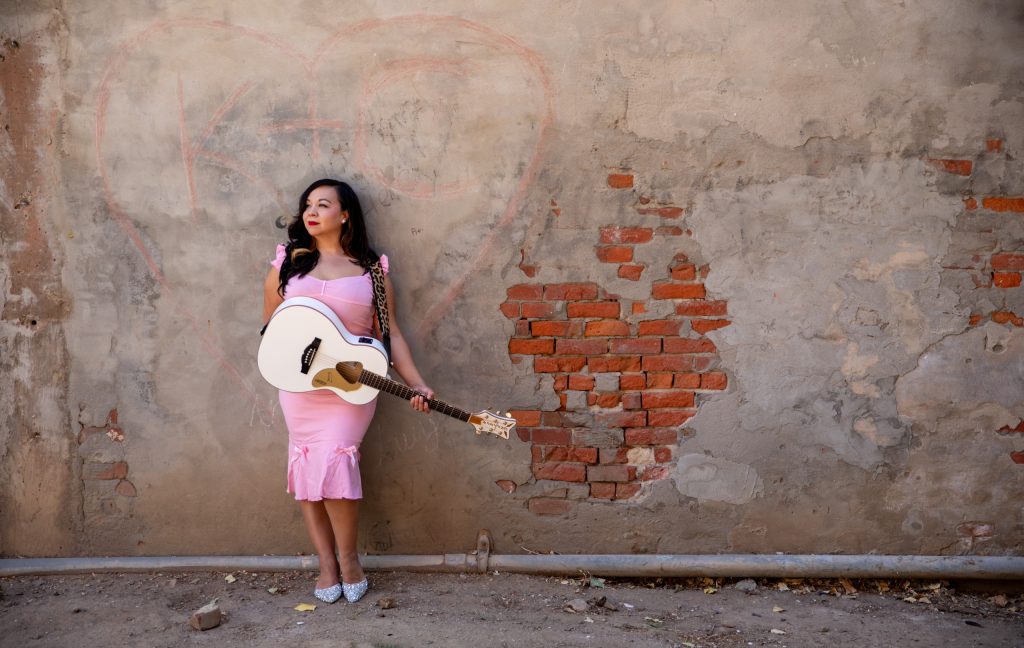
It’s late afternoon and a spectacle that resembles a Hollywood film has taken over a suburban street in Lincoln. There’s boom mics and video monitors strewn throughout one of the houses. Light shields and high-def cameras are being hustled into its living room, while an array of lens and cords are left scattered across the nearby kitchen. Jeff Hess and his team from Illuminate Production Services (I.P.S.) are staging fog machines at the back patio by the pool.
McCoy is more than ready to shoot some live songs.
She’s wearing a polkadot dress as she lifts her Gretsch Electromatic hollow-body bass guitar, a classic ax that looks like an accessory to a Stray Cats rockabilly show. McCoy slowly turns her amp on as the Neon Stars get ready behind her.
“We’re rolling,” Director Alex Aslanian shouts. The musicians launch into “Grass is Greener,” an old standard first made famous by the child-country star Brenda Lee in the 1950s. McCoy’s voice throws a bright bounce against the steady rhythm as a camera pans by.
This isn’t her first video rodeo.
During the pandemic, McCoy started releasing video performances by using cell phone or GoPro cameras in different settings. The band had fun and the clips began introducing them to new and different fans. Today, working with I.P.S., McCoy is bringing her production aims to the next level. She’s calling this shoot the “At Sundown Sessions.”
After filming two more songs, everyone takes a break. McCoy has the director and producer crowding over her shoulders to look at the new footage on a screen. They’re all closely watching video images when McCoy’s husband, Ed — who works in law enforcement — arrives home to find musicians and strangers filling his house. McCoy glances up from the monitor, saying to him, “Hey, take a look at my Only Fans video we’re shooting.”
Ed gives a slight smirk as he starts making his way through the battery of equipment between the kitchen and living room. He knows how much his wife loves music, and he knows that love was a long time in the making.
McCoy’s obsession with sweet sounds began at age 5 when she heard her parents playing The Beach Boys’ “Endless Summer” LP. Her father was into rock ’n’ roll, but her mother, who grew up in the Philippines, also held an appreciation for old school hits from Nashville.
“In the Philippines, country music was super popular,” McCoy reflects. “There were stories that my mom would mention about how my grandma would be listening to Slim Whitman in their hut, which had a dirt floor, and she’d be singing his ‘Indian Love Call.’ Slim Whitman was 1950s yodeling country music; and somehow those songs ended up in the Philippines.”
McCoy’s grandfather on that side of the family was the first to immigrate to the U.S. He’d been an allied fighter with American soldiers during World War II in the mountains outside of Manila, ultimately surviving the Bataan Death, which gave him a path to becoming a U.S. citizen. His wife and relatives soon followed.
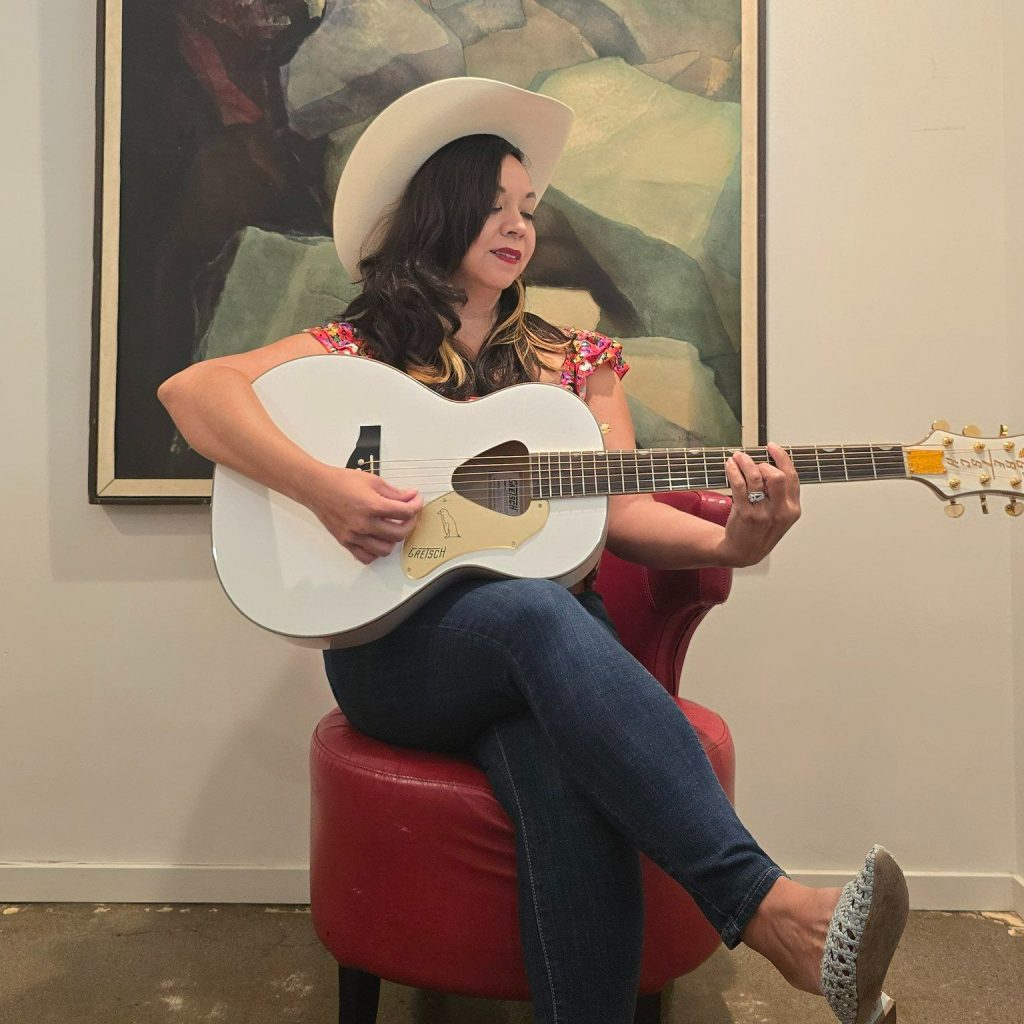
By the time McCoy was born, the family was living in California’s South Bay. She was raised in Sunnyvale and attended the same high school as Steve Jobs. Growing up in the orbit of Berkeley meant McCoy was religiously following the punk label Lookout Records by the time she was 14. She patronized raucous, rebellious shows at Bottom of the Hill, Slims and the Cactus Club, connecting with the attitude that exuded from bands like the Groovie Ghoulies from Sacramento. As McCoy got older, she began exploring the roots of punk music, which eventually got her interested in the genre’s high-haired, twangy cousin, rockabilly. She listened to artists like Mike Ness who were crossing seamlessly between the styles.
McCoy’s ears and heart started to reach further into the past.
The first successful group McCoy joined was a country duet called the Heartache Valley Girls. They played some of the truly lauded honky tonk stages in the Golden State, including Trout’s Nightclub in Bakersfield and Buck Owens’ Crystal Palace. It wasn’t long before McCoy and her singing partner, Sylvia Neal, were invited to appear on a Nashville-based reality television competition show called “Can You Duet.” Their episode aired nationally on the Country Music Channel in 2008.
The following year, McCoy moved to Sacramento and started building a full band. The influential music promoter Jerry Perry started booking her at Old Ironsides. McCoy was different from a lot of the acts Perry worked with, a millennial playing country swing, but she didn’t worry. She knew her home state, and Sacramento itself, had deep roots in the genre she was trying to revive.
“There’s something to be said for growing up in California,” McCoy stresses. “We always talk about Texas and Tennessee when it comes to country music, but we don’t give California enough recognition for the songs that came out of here. I’m not just talking about Bob Wills, Buck Owens and Merle Haggard. There’s also Liz Anderson, who wrote a lot of songs for Haggard and lived right here in Sacramento. And Cindy Walker, who wrote a huge catalog of old school western swing songs, was also in California. I think we should have pride in that.”
Boots that won’t stop walkin’
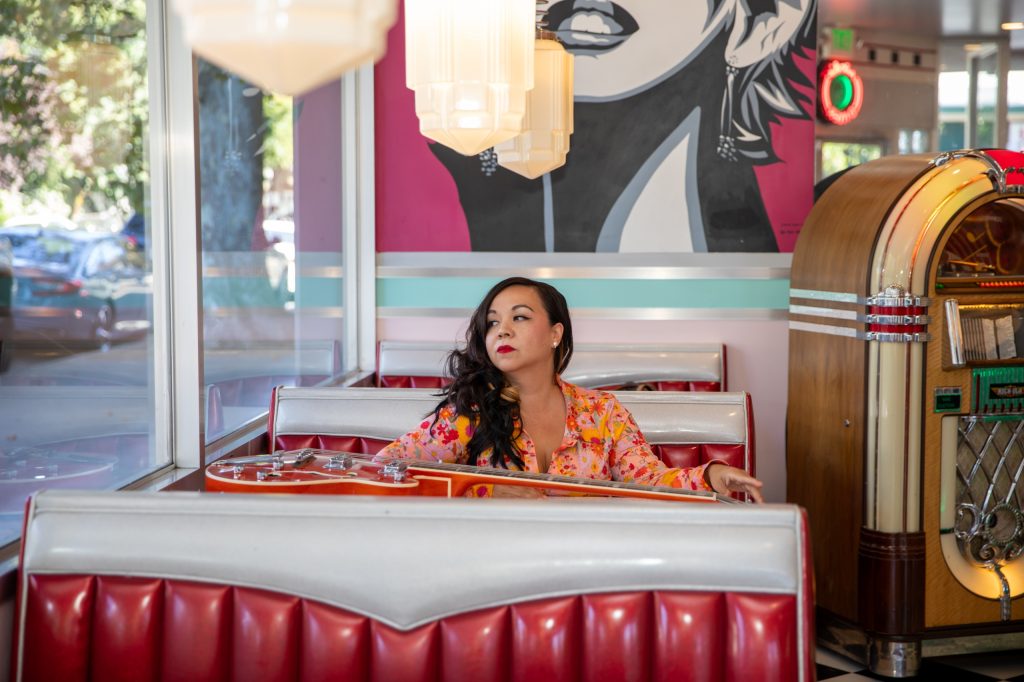
A 9-year-old boy is doing an extended head-stand as Mae McCoy and the Neon Stars perform for a main street clamoring with people. Sunlight is falling under the saddle horn of the Vaca Mountains in the west. McCoy’s band is locked and loaded, pushing a horse-trot beat through the lamp-lit maple trees of downtown Winters. There’s a stirring strength in the frontwoman’s voice as she sings “Detour” against the worn bricks of the farming hamlet. Wine-lovers relax on patio chairs. Couples are walking dogs. Families are huddling near the music as they dig into barbecued meals.
This event, Winters’ Fourth Friday Festival, brings a crowd that is well-suited for McCoy’s kind of show.
It’s also a good opportunity to promote her recent album, “At Sundown,” which is now on all major streaming platforms. For McCoy, making the record was an empowering journey. That’s partly because it was recorded in Brady, Texas, and produced by award-winning singer and songwriter Justin Trevino.
She and Trevino first bumped into each other at the Martinez Social Club in San Antonio, Texas, back in 2019. McCoy was on vacation when she spotted Travino. She loved his radio hits like “Texas Honky Tonk” and struck up a conversation with him. Though rarely short of words, McCoy didn’t mention to Teavino that she was a musician. The two became friends on social media and only then did Trevino start hearing country songs by the California girl. A couple years later, he invited McCoy back out to Texas so he could be the sound-engineer and producer on “At Sundown.”
“He’s worked with Wanda Jackson, Tony Booth, and Johnny Bush — this guy is amazing,” McCoy stresses. “I used to listen to him on Sirius satellite radio. An opportunity to work with someone like him usually only comes along once.”
Trevino ended up playing bass and rhythm guitar on the project while filling the remainder of the studio band with expert musicians from across Texas. The group ended up backing McCoy on 12 tracks that comprise “At Sundown.”
Trevino says it was a blast to work with McCoy. He appreciates her artistry — and her sense of humor.
“Her tastes are running so similar to mine,” Trevino notes. “She’s a great singer and I feel good about the recordings. Outside of the work, I just enjoy talking to her. She’s absolutely charming — just delightful. I’m always happy to brag on her.”
For as much energy as McCoy puts into plugging “At Sundown,” a huge part of her time is also dedicated to being the vice president of Sacramento’s Western Swing Society. The nonprofit group has been around since 1981. Lately, its mission is to keep the great American genre from fading away around the capital. McCoy runs the group’s social media, working to get more people to show up to its monthly events at The Machinist Hall. She has seen some younger faces on the dance floor this year — couples interested in learning how much fun it can be to move around to the music.
“It should continue to be shared,” McCoy muses. “It shouldn’t die off. I used to write a lot of songs. I don’t lack that ability; but I have such a love for this music that’s already out there … . These songs were so well-written, and so-well produced, and brought such a great feeling.”
The Machinist Hall may be a reliable venue for McCoy’s performances, but navigating Sacramento’s broader entertainment landscape continues to be a challenge. She was just booked to play Ruhstaller Farm in Dixon, considered a top outdoor venue in the Sacramento Valley, yet general opportunities still felt limited to her. Many venue managers want to build their audience turn-outs around simple messaging, and there is nothing simple about describing McCoy.
“They don’t know what box to put me in,” she admits. “Sometimes I think it’s just my physical appearance that doesn’t connect. I don’t look rockabilly. I don’t look like Lorretta Lynn or whatever. Sometimes, when it comes to being a brown-skin girl, I don’t know what to do — other than be myself.”
Tonight, in Winters, as McCoy starts singing Nancy Sinatra’s “These Boots are Made for Walkin,’” perhaps the truest version of herself is on display: She’s performing the music that moves her, and she’s sharing it with a crowd that is ready to be moved. It’s a feeling she gets so swept up in that musical politics of Sacramento, and every other worry and concern, just melt away.
“I still get chills,” she says of playing for a great crowd. “There is something about the art that’s so obsessive, almost delirious. It will always be your mistress. For me, it will always be a blessing when doing that is also the thing you’re getting paid for. But it’s not a monetary thing — it’s for your soul.”
This story is part of the Solving Sacramento journalism collaborative. Solving Sacramento is supported by funding from the James Irvine Foundation and the James B. McClatchy Foundation. Our partners include California Groundbreakers, Capital Public Radio, Outword, Russian America Media, Sacramento Business Journal, Sacramento News & Review, Sacramento Observer and Univision 19. Sign up for our monthly newsletter.
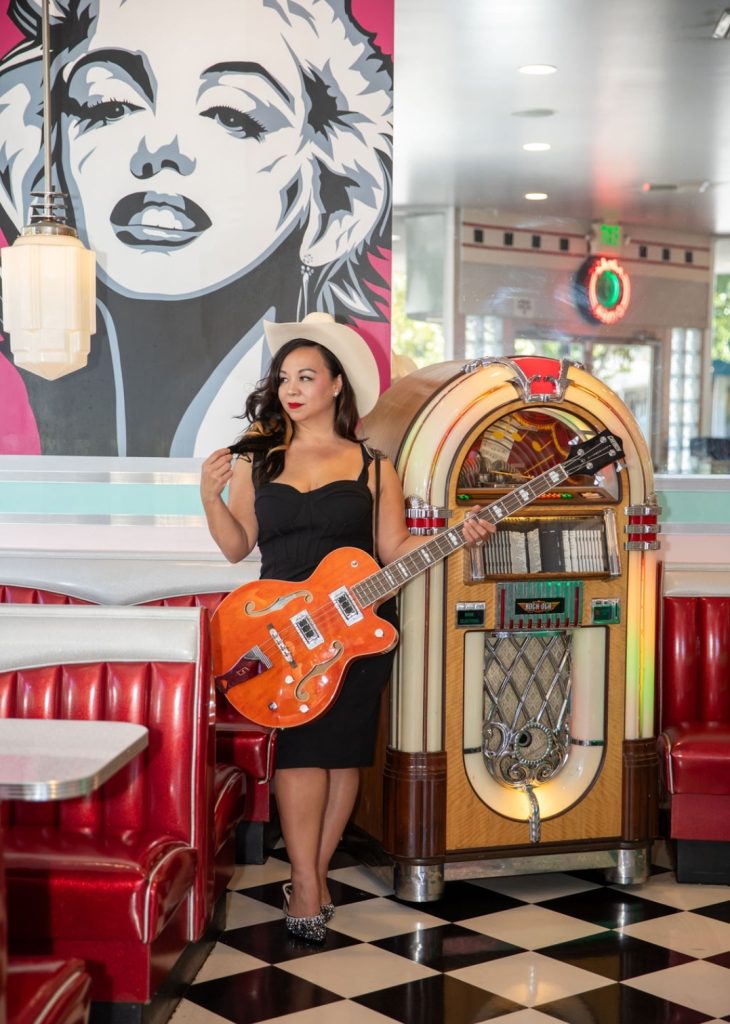

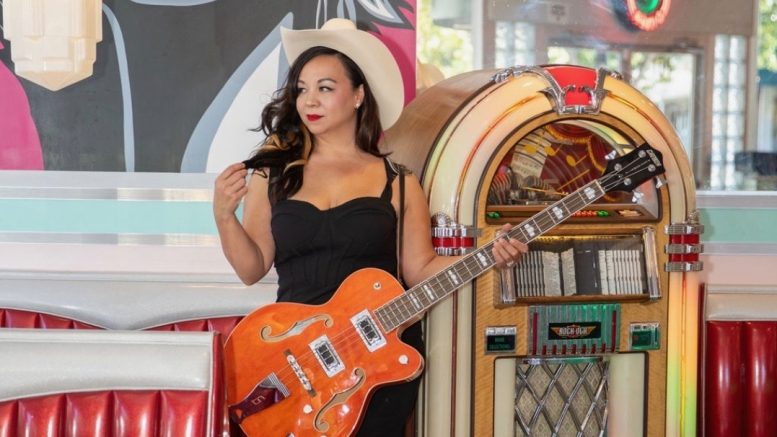

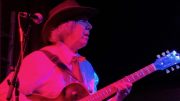
Well done, Scott! Mae’s heart for the music really comes through here.